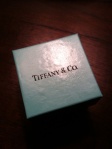 No matter how good your company is, sooner or later you’re going to mess something up. You won’t mean to, but you’ll do something that upsets a client. Maybe you’ll miss a deadline, maybe costs will come in higher than you estimated, maybe one of your employees will unintentionally offend a client with a stupid joke. The question is not whether or not something will go wrong in a client relationship. Something always goes wrong.
No matter how good your company is, sooner or later you’re going to mess something up. You won’t mean to, but you’ll do something that upsets a client. Maybe you’ll miss a deadline, maybe costs will come in higher than you estimated, maybe one of your employees will unintentionally offend a client with a stupid joke. The question is not whether or not something will go wrong in a client relationship. Something always goes wrong.
The real question is: what do you DO when something goes wrong? A trusted business advisor once told me that it’s always a good strategy to overreact to a mistake. Don’t assume that just because the client says it’s no big deal that it’s no big deal.
Here’s a great example of the right sort of overreaction from the little blue box of high-end retail: Tiffany. A friend’s husband ordered her a necklace from the Tiffany website as a Christmas present. He selected a shipping method that would get it there by Christmas Eve. For reasons that may or may not have been Tiffany’s fault, the necklace didn’t arrive on time. They assured him it would arrive the following week.
But in the meantime, they overnighted — for Saturday delivery, no less — a complimentary gift card for $100. I don’t care who you are, a hundred dollars for free makes an impact. It’s a heck of an apology. My friend says she’d never really been a big fan of Tiffany before, but now she’s a true believer. Her husband, who had planned to have another jeweler knock off a celebration ring Tiffany makes to save a little money, now feels it’s imperative that he buy that ring from Tiffany, regardless of cost. His takeaway: “I know Tiffany will do it right.”
Of course, the reverse happens often enough. There’s a dime store in Atlanta that has been here for about three generations. It’s a well-loved institution. They’ve built their reputation one happy customer at a time, year after year after year. It’s the kind of place where parents take their kids for a ride on the same mechanical horse they rode as children. A ride on the horse still costs a dime.
One day I watched a cashier eradicate all those decades of goodwill, at least for the one customer she was serving. This guy handed her a clapping monkey he wanted to buy. You know the one, with the striped trousers and the brass cymbals. The price tag on the monkey said one price. The register rang it up at a higher price. The customer said he wanted to pay the price on the price tag. The cashier said, well, I can’t sell it to you for that, because the register says it’s supposed to cost such and such. They went around and around and around until finally the customer said, you know, I’ve been shopping here for years, but now I’m not coming back again. What’s more, he promised to tell all his friends what happened with the clapping monkey. And he walked out — monkeyless and not happy about it.
Wouldn’t it have been worth the few bucks difference in price to keep a long-time customer happy? I like to think that if the owner had been there, he would have apologized profusely to the customer. And then given him the clapping monkey for free.

great article – and so true. It is all about how you treat the mistakes that will make a client a client for life.
The Tiffany example unfortunately, is not representative of Tiffany all over. I had a very unhappy experience with Tiffany, and their “snooty” attitude permeated the transaction. Point being: building a customer focused culture has to come from Top Down, and has to include EVERY person in the organization or else it will fail. One rotten apple is all it takes to undue years of goodwill.
That’s true, Meryl. You can spend billions on advertising and other brand promotion and then one surly drive-thru cashier or snooty salesperson can wreck it all. So important to help employees at every level live and breathe the brand promise.
Meryl – so true!